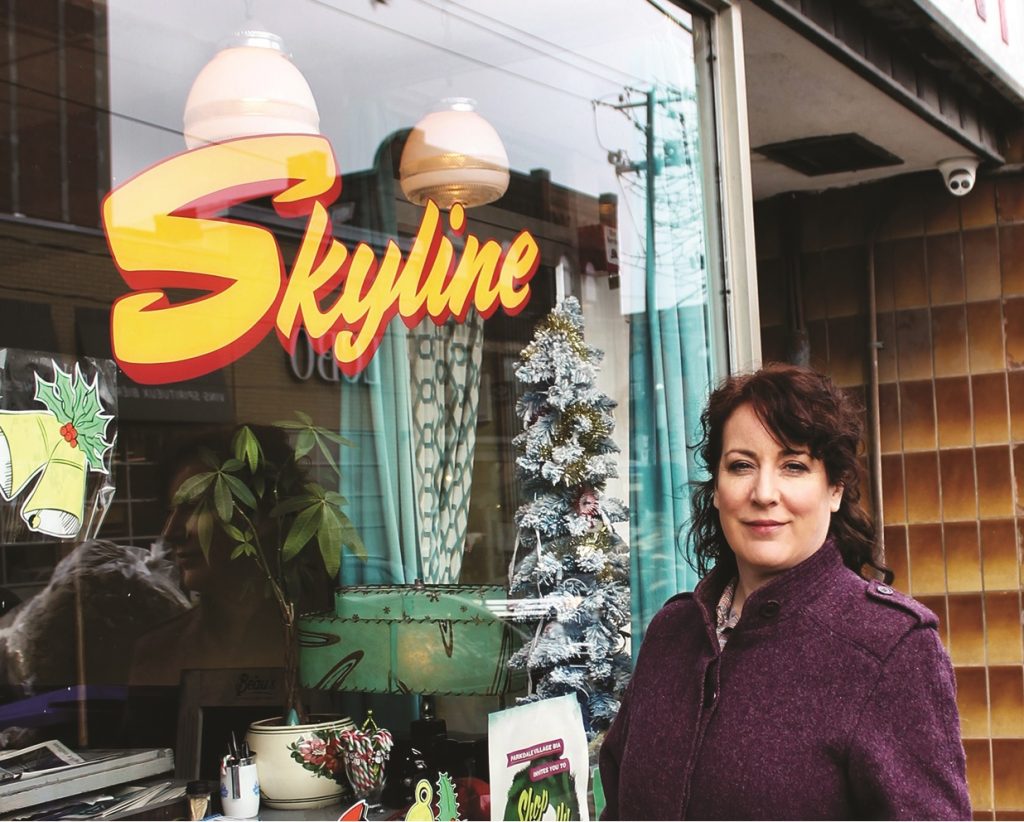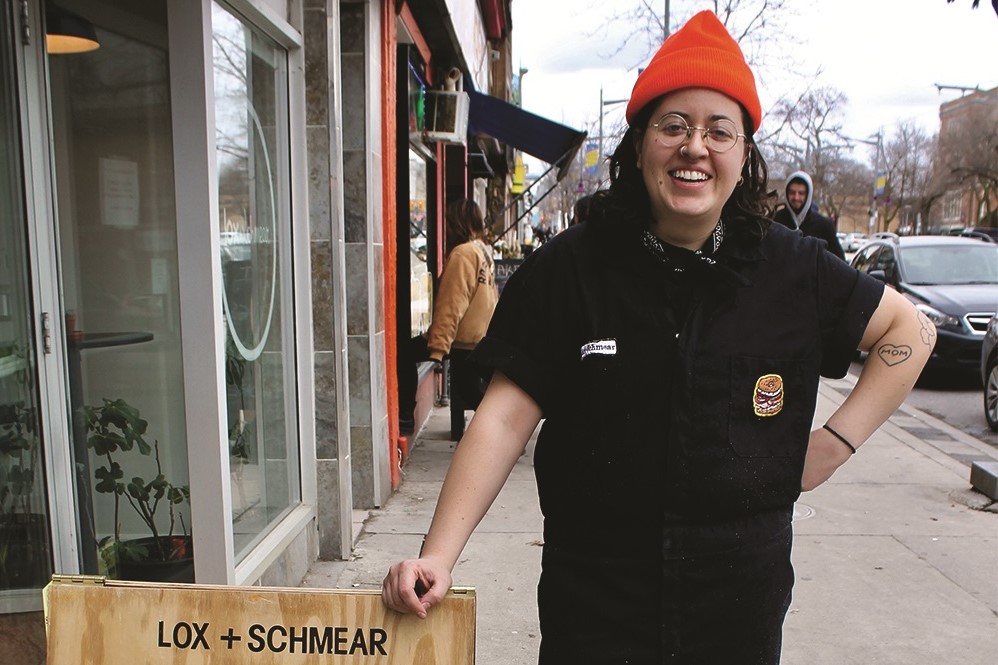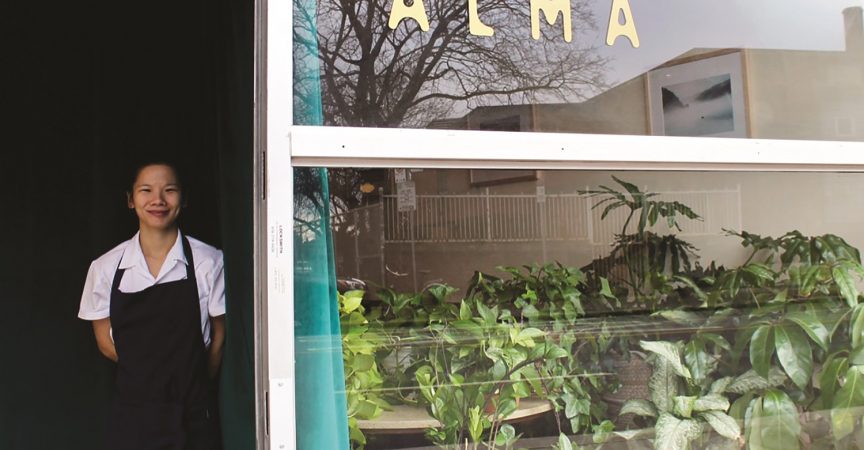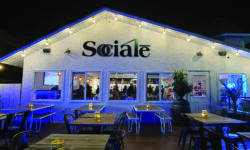Opening up a Restaurant Without Backers: True currency of the restaurant game
All photos by Ivy Knight
Opening a restaurant is a dream for many, from the food runner crumbing tables in a busy dining room to the line cook searing steaks on the grill. This business is tough, but so are we. Is having a great palate, a strong back and a dream enough to open a restaurant? And is it possible to do it on your own dime?
I’m about to introduce you to some Toronto folks who’ve done just that. A gender nonconforming bagelier (is that even a word? It is now) a cream pie maven with no back of house experience, and a protégé of one of the country’s most revered chefs. Buckle up for some entrepreneurial inspo.
Restaurateurs are often tight-lipped about what they’ve spent and every concept and neighbourhood is unique, so coming up with a rough estimate on how much it actually costs to open a restaurant in 2020 is difficult. According to Lyn Little, a partner at BDO Canada: “A ballpark (for Toronto) may be around $200k, but every situation is different and a detailed budget based on actual facts should be used.” That amount is a good starting point.
Ori Grad, a fifteen-year veteran of Toronto’s commercial real estate scene, and the go-to realtor for aspiring and established chef/owners, gets scrappy upstarts looking to open with that kind of budget all the time. It’s a number he can work with, especially at this time of year; January and February are what he calls “fire sale season.”
“$200k is good,” agrees Grad, “and you can leverage it to get more. Most people don’t have nearly that. If you want to do it all yourself then you look for a place that has everything you need.” Moving into an existing restaurant is what each of these independent operators did, and none of them went over $200k in the process.
Got it? Good. Now let’s get inspired.
Serving club sandwiches since the 60s, the
Skyline Restaurant has had only two owners. Siblings Maggie and Jud Ruhl are
the second. Although this is the third successful revamped space the Ruhls have
breathed new life into, they are not rich. Every project is a labour of love
and often $200k is well above their starting budget. They live by YouTube
tutorials and the belief that a new coat of paint is a legit design philosophy.
When asked if she’d ever considered partnering with an investor, Maggie Ruhl
admits she never has. “I guess I never thought I could get a backer,” she
muses.

Thanks to their efforts, the wallpaper in The Ace Toronto is the same that hung in its former incarnation, a Chinese restaurant that opened in 1956. Bar stools carved out of wine barrels were due for the junkyard before the siblings stepped into what would become the Dakota Tavern, and knew these would be the highlight of their new honky-tonk. “We like to use what’s already there and to very gently bring things back to life,” says Ruhl.
Tight budgets breed creativity and stewardship. Those who prefer a DIY approach tend to be the kind of people who preserve a space and pay homage to history. The Ruhls are just such people. Ruhl believes that this approach is the secret to their success. “I’ve been doing this for seventeen years, and the biggest lesson I’ve learned is that hard work and physically being in a place is not only rewarding, but it helps the place be successful. Staff and customers like to have owners who really have a passion for the project.” Skin in the game is all the more alluring with some dirt under the fingernails.
During her career, Ruhl has always stuck to the front of house. She’s the GM at Skyline, but she doesn’t sit behind a desk. On a recent shift, over the course of an hour, she was mixing drinks behind the bar, running food, greeting guests and taking orders in the packed dining room. She also goes in early a few times a week to make cream pies. Standards, like banana, are de rigueur, but she’s been known to whip up other variations: hibiscus, whisky sour, Earl Gray and sesame cream pies. “It tastes like a sesame snap!” She sources all of her ingredients from the Skyline’s Parkdale neighbourhood, and her efforts were included in a recent Porter Magazine roundup of the city’s best pies.
She recalls opening the Skyline to pushback from neighbourhood regulars. “People were nervous and angry and thought hipsters were taking over.” She shakes her head ruefully, red curls bouncing, “Which is laughable. We’re not that cool.” It all came down to keeping the retro feel of the diner while updating the menu and ingredients. There was one menu item that had to stay: a club sandwich made with turkey salad in place of the more traditional sliced turkey. “The ‘Skyline Special’ is still on our menu and people love it.”
The richest day of Lev Levine’s young life growing up in Thornhill was their bat mitzvah. Every penny from that windfall was saved and added to over the years, until Levine realized their dream and opened a lox and bagel shop on St. Clair in 2018. Levine smokes their own fish (the restaurant’s motto is “Smoke Fish, Not Drugs”) and turns out innovative bagel sandwich creations while also educating their customers about LGBTQ issues. The shop is a safe haven for gender nonconformists, while simultaneously operating as a smoked fish counter. The walls are decorated with framed family portraits showing young Levine in an array of Sunday best ensembles, complete with some very matronly hats. These days they prefer a navy jumpsuit to dresses and a blaze orange toque to those Queen Mother toppers. Of the shop’s minimal design, Levine is pragmatic. “If it was any more designed it would get destroyed by the children and the strollers.”
A sign posted by the menu explains that
until tomatoes are back in season they won’t be available. A brave move in a
world conditioned by a neverending supply of tasteless tomatoes, and a decision
they might not have been able to make had they gone into partnership or aligned
with backers. Not to mention the whole gender thing. “I’m fighting the good
fight for gender neutral. We play a large part in the queer community. It’s
important to me, as a business owner.” Orange toque bobbing, Levine feeds St.
Urbain bagels into the toaster oven before loading them with generous piles of
smoked Atlantic salmon, capers and dill. With a ready smile for the endless
stream of regulars, Levine has built a restaurant, for under $100k, which is
exactly right for them. “I’m not like other restaurant people. I don’t want to
be.”

Lest you think indie outliers are only serving cream pies and bagels, consider Anna Chen. One of Toronto’s most talented chefs, she came up under Susur Lee. At one point Lee didn’t have the best rep as an employer, but, while his staff might have had difficulties under his rule (Lee apologized to employees and agreed to change his policies in 2017), his food never suffered. Time spent learning from Lee, as well as jobs at independents Actinolite and Famiglia Baldassarre, and a number of years opening and helming concepts for the massive Icon Legacy Hospitality group, have all made Chen into a chef to be reckoned with. She has a wicked palate, precise hands and an exacting eye. Even her skeletal structure is imbued with rigorous discipline. Chef whites have never draped a straighter back.
Alma is the home that Chen has always wanted to build for her food. The youngest of five children, she grew up in Calcutta before moving to Toronto in 2004. After fifteen years in restaurants, she knew she was ready to open her own spot. Like Levine and Ruhl, Chen was working with a tight budget. Also like them she was able to find a location with everything built in.
“It had hoods, a walk-in fridge and freezer. We just had to clean it, put down new floors and build a bar.” She gutted the basement and set it up to her specs for a prep area. It took her life savings, but she made it happen. And now, after working for so many owners over the years, Chen is finally her own boss. Every day she looks forward to coming to work. “The day-to-day is the best feeling. I’ve never been more content in my cooking career.”
Chen cuts costs in a number of ways; she doesn’t use a laundry service, instead, she invested in a washer/dryer to do the linens in-house. You’ll find her at the Food Terminal every Tuesday purchasing her own ingredients. That means getting there at 6:30 am during the growing season, but it saves her a lot of cash and gives her absolute control over quality. A tight budget also means being very careful when hiring. And, despite, or perhaps, because of some of her experiences as an employee, Chen highly values her staff. “Labour is one of the biggest costs. Every person who works here plays such a key role, to hone in on their skills and have their input is very important.” Alma is not run like a dictatorship, each member of the team has a say. “It’s a very organic way of working, everyone is happy.”
Chen and husband William spend most waking hours at Alma, welcoming eager guests to their Dufferin Grove restaurant just two blocks east of Lansdowne Station. Dishes like the soy and molasses glazed fried chicken and the pork wonton and black pepper noodles are perennial favourites, and she’s excited to introduce char siu chops to the menu this month.
While all three owners have very different restaurants they all agree on one thing, the most important move one can make as an indie restaurateur: hire a good accountant. “I have no debt, that’s pretty cool,” says Levine.
There are so many different ways in which a restaurant can manifest. We need independent owners in this industry to bring fearless originality and unorthodox innovation to the scene. Chez Panisse may have popularized seasonality back in the 80s, but micromanaging backers who demand mass appeal menus mean tomatoes will always be in season. It’s the lone wolves like Chen, Levine and Ruhl who remind us that budgets pale in comparison to the true currency of the restaurant game: fresh ideas and bold entrepreneurs.








It was an absolute pleasure to work with Anna & Maggie, to negotiate their lease, acquire a fixturing period, handle the liquor license process and protect their interests, to see their dreams come to fruition.
Stephen M. Murphy
omgrealestate.com